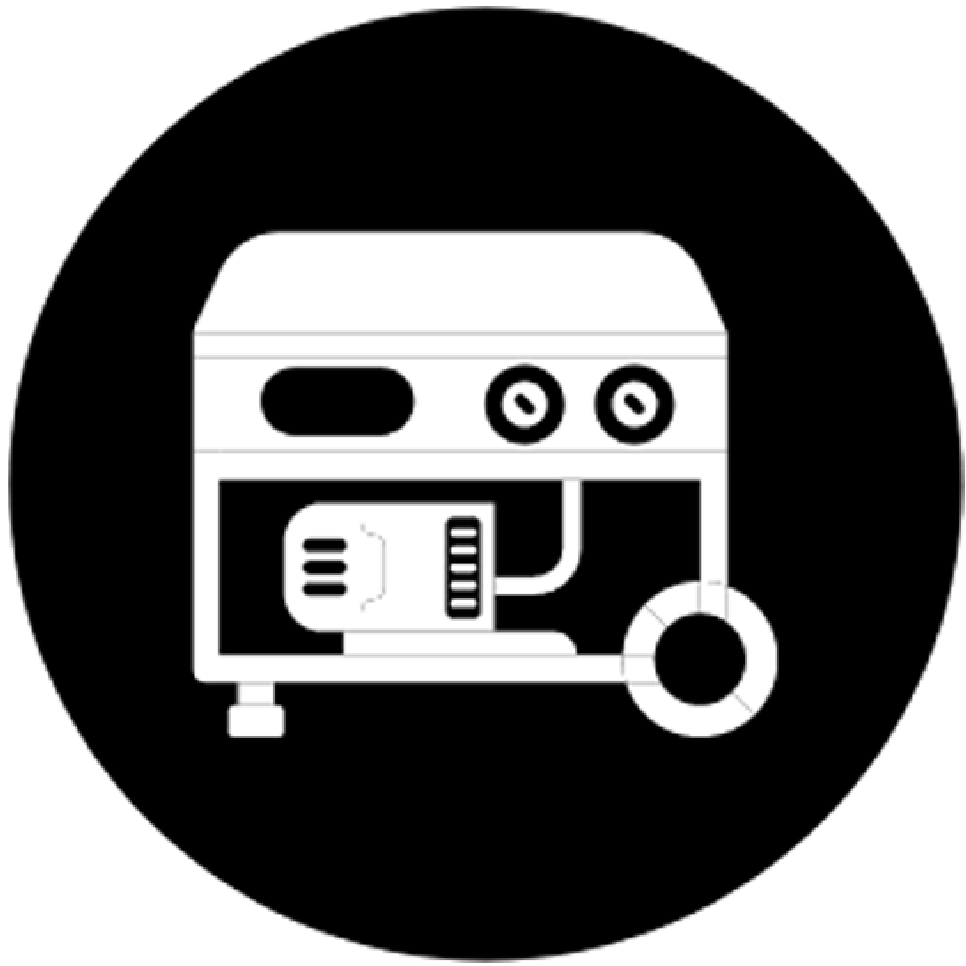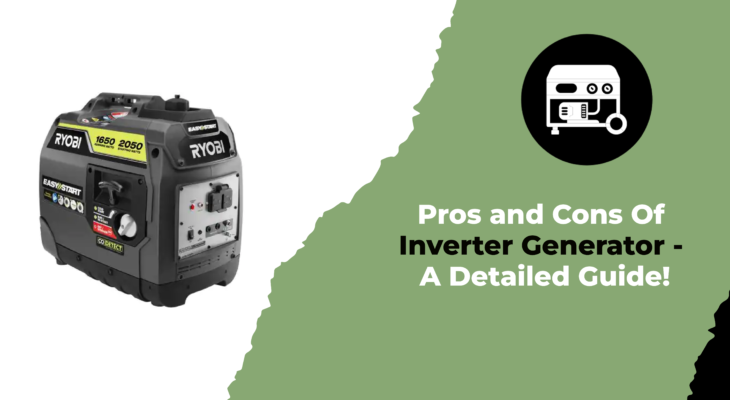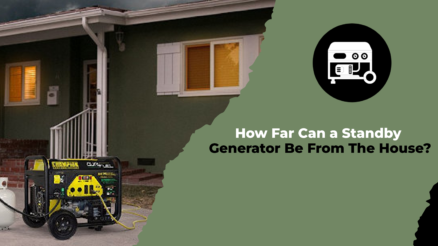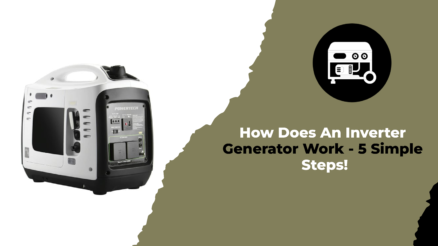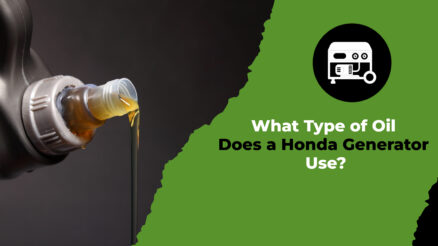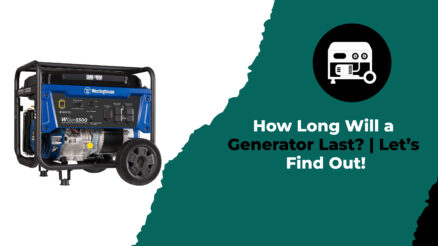There are many generators, including standard, portable, and inverter. We always choose the one that fulfils our electricity demands. But have you ever used inverter generators? What are inverter generators? When it comes to portable generators, the best option is the inverter type because of its improved technologies.
The speed of these generators may be adjusted automatically to meet the current electrical demand rather than remaining constant. There is a notable decrease in fuel usage and noise in the inverter-type generator. There are a lot of advantages and disadvantages they have over regular portable generators. Because whatever we use, everything has its pros and cons.
Many still need to wonder whether an inverter generator is ideal for them. Although they cost a little more, these generators are far more trusted, last much longer, and produce little noise. In this article, we’ll discuss in detail the inverter generators and the pros and cons of inverters vs generators that help you select the best one.
Electrical inverter generators
As the electricity demand increase, inverter generators become more popular. Electrical inverter generators provide consistent AC power without needing containers that low their noise because these generators give you clean power. You can set them to produce either 120 or 240 volts, and they’re much quieter than regular generators.
If you have ever used these generators, you already know that they are reticent compared to standard generators. Do you know why these generators are silent? But before knowing this, you must first learn how an alternator works.
While the alternator is quite similar to the generator, there is one key distinction. A strong magnetic field is produced when DC electricity stimulates the rotor in an alternator. The rotor generates a magnetic field, while the stator dampens it, allowing electricity to be made and collected.

But, in a generator, the excitation winding helps the stator create a magnetic field in which the armature may revolve and the armature winds around the area. Electricity is collected by the rotor using carbon brushes, which wear out fast and must be changed often.
The electricity produced by the inverter generators is safe for other electrical appliances like refrigerators, ovens or computers.
Inverter vs Generatorsors
Any generator that also includes an inverter is called an inverter generator. But how do these generators work? Inverter generators are more portable, silent and lightweight when compared to standard generators. They use high-frequency DC-to-AC conversion. The electricity is converted so that normal generator-style fluctuations are not produced.
Standard and inverter generators both have their benefits and disadvantages. They both exist in various designs with different power capacities and fuel sources.
When comparing the functioning of a regular generator to that of an inverter generator, the primary difference is in the system’s efficiency as a whole.
The generator runs at a steady RPM. These consistent rates cannot be changed and may increase operating costs, fuel usage, and pollution. Varieties of inverters may vary their speeds to meet specific power demands.
Inverter generator engines change speed based on load. Inverter-equipped generators benefit from less noise, increased efficiency, and fewer adverse environmental effects. All in all, inverter generators are much better for home usage than generators because of the above reasons.
Pros and Cons Inverterter generators
Here we have listed some advantages and disadvantages of inverter generators.
Pros of inverter generator
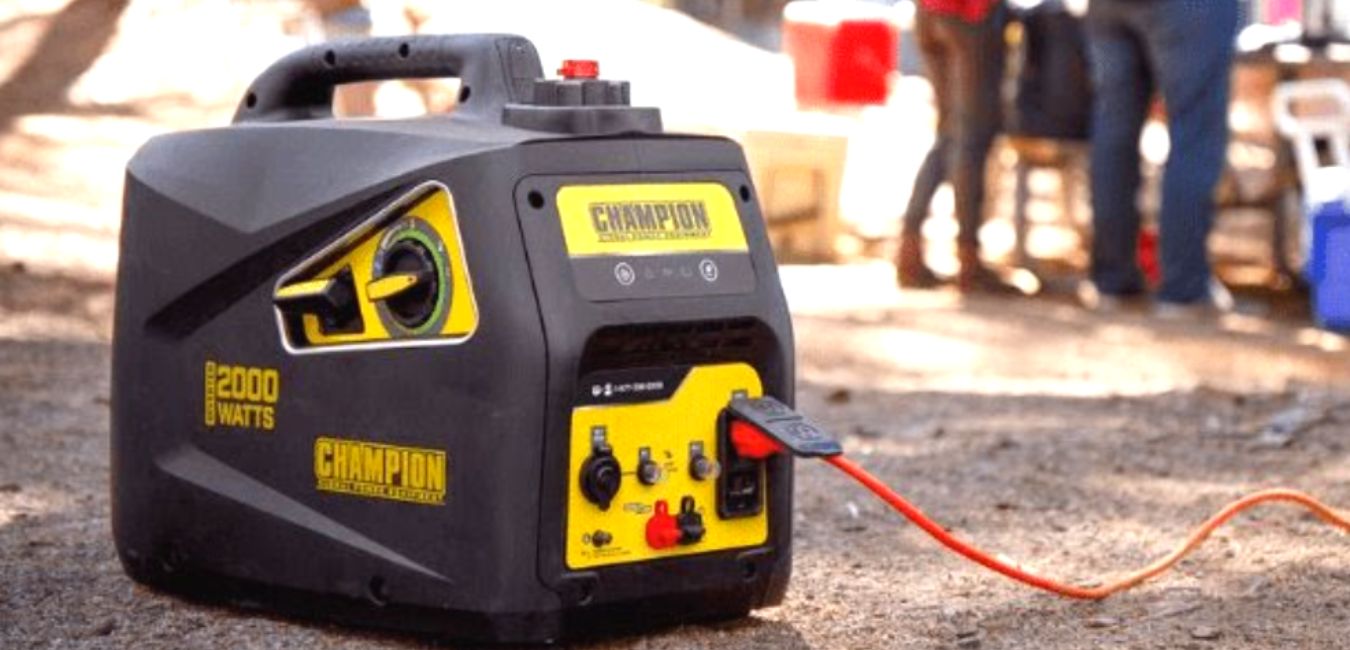
1. Fuel efficient
Compared to standard gasoline-powered generators, inverter generators use much less fuel. An inverter generator, whose engine runs at a steady speed, adjusts its output to match the specific demands of the load at any given time. Keeping the generator’s speed down could reduce fuel consumption.
When compared to standard generators, inverter generators provide remarkable fuel efficiency. If you power small appliances, the inverters will only utilize the fuel necessary to provide speed for that specific load.
2. Clean power
The main benefit of an inverter over a standard generator is that it can give clean, pure AC power with a harmonic distortion of little less than 5%. That means it’s perfect for powering your tools.
You know how pervasive electronic devices like smartphones and computers have grown in modern society. The electricity you use to charge batteries must be clean, with acceptable harmonics, and devoid of shocks to ensure their continuous operation and the safety of their sensitive circuits. There are no better options than inverter generators for this purpose.
3. Reduced noise
Most inverter generators produce noise at or around 60 dB, which is hardly audible in a silent room. Compared to a standard generator, the little engine’s slow and more steady rpm results in much lower noise levels. Inverter generators have sound-insulating casings and dampers that make them silent by absorbing their noise.
4. Portable
Because inverter generators are in the conversion stages, they are not intended to provide extra electricity. The electrical components used in each step have a maximum voltage tolerance. The unit’s size and price will grow significantly, yet it is conceivable.
If you use more than 2 appliances together then the inverters will use less fuel since it generates less power than a generator but uses less fuel overall. This minimizes the unit’s size and weight since its fuel tanks are smaller. In addition, the ease of transportation is enhanced by the presence of a handle and, if present, wheels.
5. Easy Maintenance
Inverter generators need less maintenance than traditional generators. Inspecting the battery once a month is required to keep everything running smoothly.
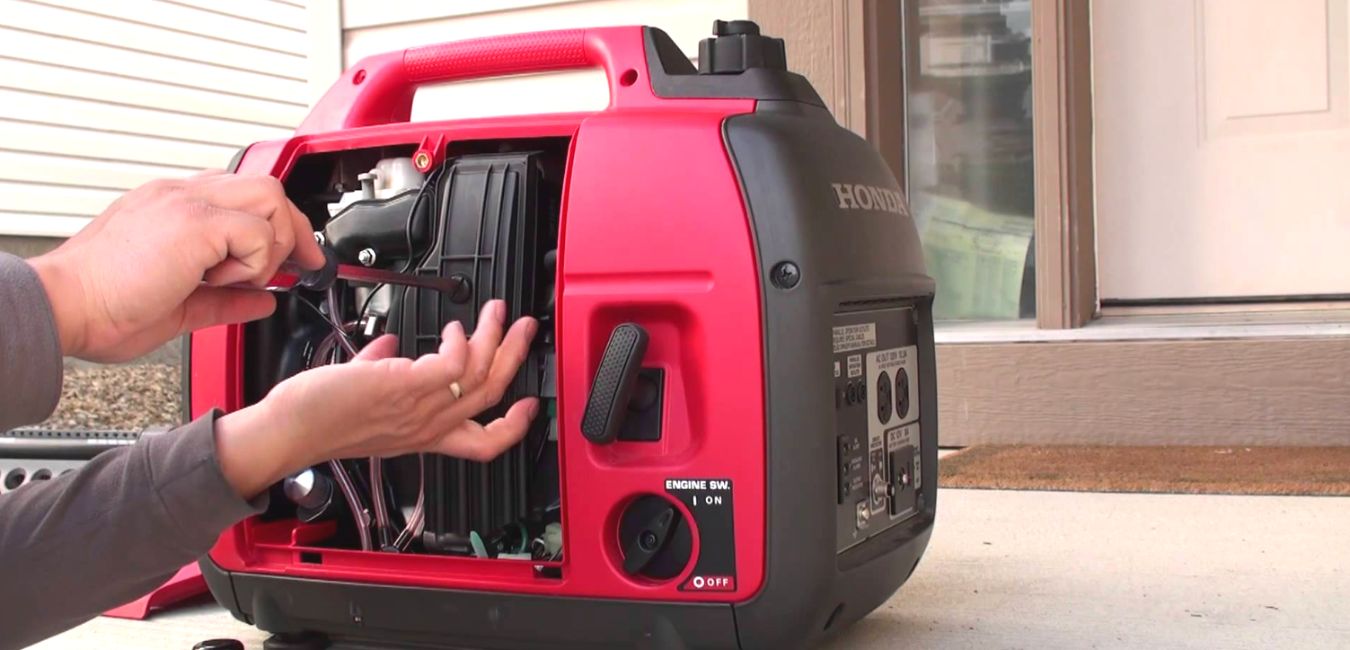
Cons of inverter generator
1. Expensive
Inverter generators are more costly than regular portable generators. In many cases, the unit’s initial cost is worth it due to its numerous benefits.
2. Low output power
However, compared to bigger conventional generators, whose outputs may be more than 1000 Watts, inverter power generators have a far lower power output. Standard inverter generators can provide electricity for a limited number of electronic devices and motor vehicles. The inverter generator may work together with another unit if more power is needed.
Pros and Cons Of Inverter Generator – FAQs
Our Verdict
Both inverters and generators help you to run your appliance when there is power out. However, inverter generators are made from modern technologies that supply clean power to your electrical appliances.
Inverters have many benefits over generators but have few opposing sides, and the price is a significant disadvantage. After knowing the pros and cons of inverter generators, you can easily decide whether these generators are best for your home!
